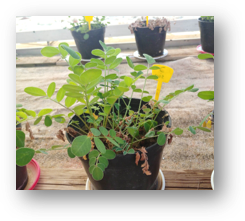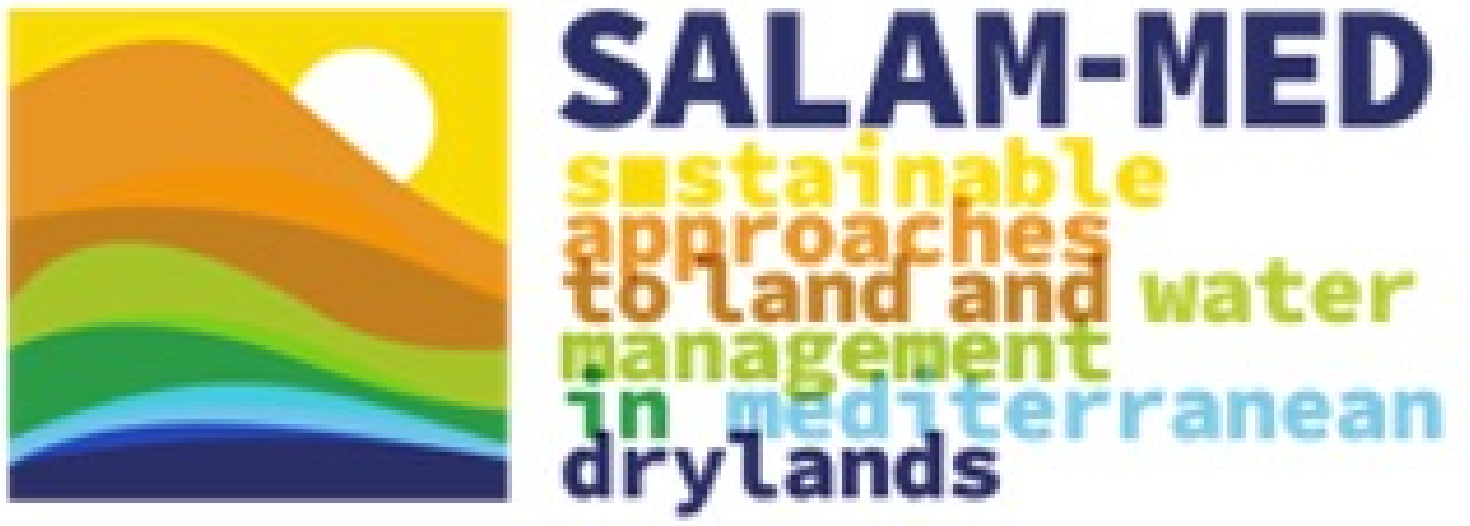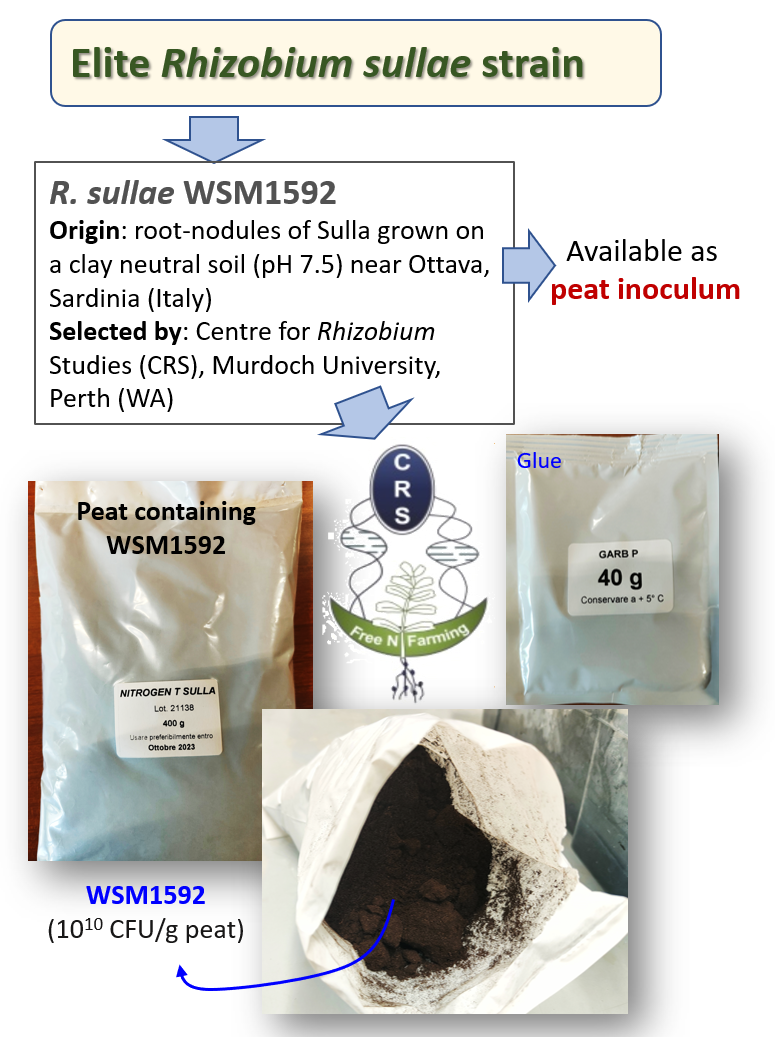Technology
Microbial-based solutions – Rhizobia soil bacteria
About the technology
The solution
Rhizobia are soil bacteria able to infect legume roots triggering the formation of typical root nodules where they can fix atmospheric di-nitrogen (N2) into ammonia (NH3) which is provided to the plant. This provides undoubtable advantages to the plant (and to farmers) that can achieve significant crop yield also in nutrient poor soils with low N content. Selected rhizobial strains can be mixed with seeds at sowing to improve legume establishment and yield in drylands and/or areas impacted by land degradation.
Objectives of the project
Using selected rhizobial strains to improve legume establishment and yield in areas impacted by land degradation.
Ecological context
This technology can be applied in all ecological context whici allow legume cultivation.
Main constraints
The seed inoculation procedure is not straightforward.
Main business opportunities
Rhizobia can be a smart practical solution for both soil health recovery and/or sustainable intensification as well as an interesting business opportunity. The availability of elite rhizobial strains in the market is limited and there is relevant space for the development of selected inoculants for the Mediterranean environment.
Socio-economic context
The solution can be used in different socio-agricultural scenarios characterized by both limited and not limited resource input.
Information to maximize the adoption
Maximizing the adoption of this solution among end-users (e.g., farmers) firstly requires suitable communication and dissemination actions. Many farmers are not aware of the possibility offered by legume seeds inoculation by rhizobia. Little technical competencies are required, seed inoculation is easy and effective when rhizobia are suitably distributed on the seeds. Seed inoculation with selected rhizobia is limited.
A limited technical competence is require to maximize the effectivenes of this practical solution which is easy to use and has reduced costs.
Indexes
Need for skilled workers
Speed of learning the solution
Ease of adoption
Ability to address the problem
Degrees of robustness of the solution
Level of investment required
Impact on climate change
Impact on water availability
Impact on water quality
Technology Feedbacks

Giovanni Garau
⭐ ⭐ ⭐ ⭐ ⭐
I’ve tested the technology in a typical acidic soil within the Gallura region in Sardinia (Italy) to inoculate Sulla coronaria seeds with a selected Rhizobium sullae strain. Some feedback: – the inoculation procedure was easy to follow, also thanks to the youtube tutorial available in this page; – the solution worked well allowing Sulla growth in acidic soils; – when combined with soil liming, inoculation allowed for significantly higher plant yield.
Have you had the opportunity to try this technology?
Leave your feedback and we will publish it.
Living Labs for testing and implementing this technology
Living Labs as a crossroads for the development of sustainable and resilient technologies for environmental, economic and social progress.
Italy
Tech Responsible contacts
Giovanni Garau
ggarau@uniss.it
Do you want to learn more about the suitability of our technologies?
Use our solution finder to check the usability of this technology in your area or agricultural business.
Leave your Feedback

![[Rhizobia soil bacteria] Colonie di Rhizobium sullae](https://platform.salam-med.org/wp-content/uploads/2023/09/Rhizobia-soil-bacteria-Colonie-di-Rhizobium-sullae.png)
![[Rhizobia soil bacteria] Noduli radicali su Sulla coronaria](https://platform.salam-med.org/wp-content/uploads/2023/09/Rhizobia-soil-bacteria-Noduli-radicali-su-Sulla-coronaria.png)
![[Rhizobia soil bacteria] Sulla coronaria](https://platform.salam-med.org/wp-content/uploads/2023/09/Rhizobia-soil-bacteria-Sulla-coronaria.png)

